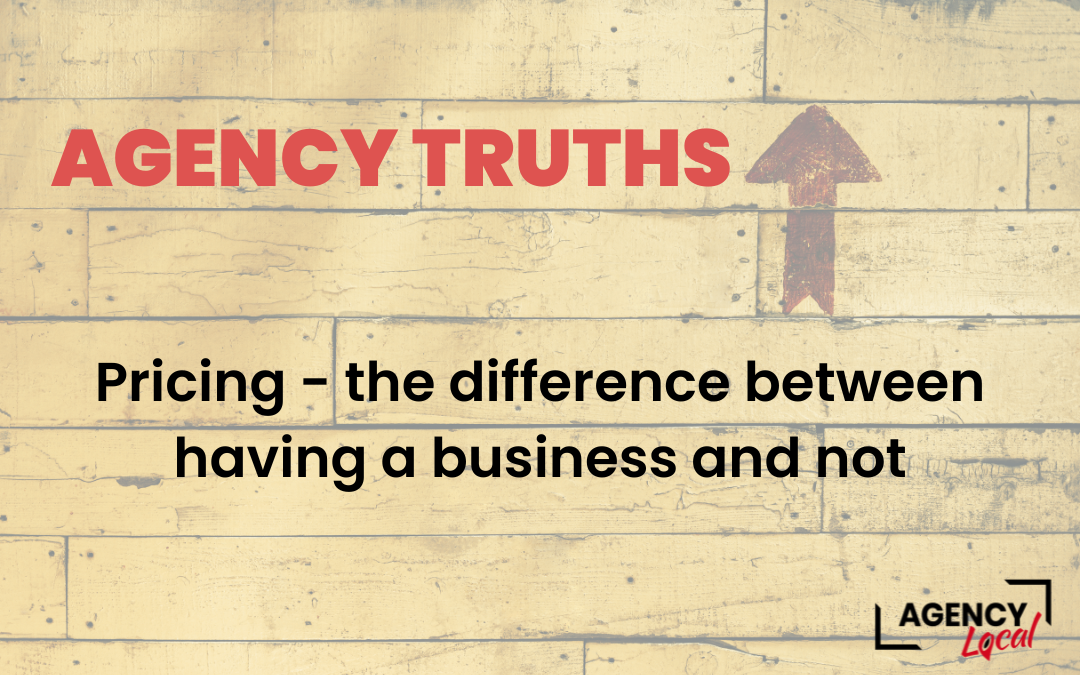
by Chris Bantock | Jun 7, 2022 | Agency Business
Some truths about agency pricing
Pricing is one of the most important elements to think about in your agency business.
Why? Get your pricing wrong and you don’t have a business – simples.
It does not matter if you are a solo agency, a small agency or a bigger agency. Yes, some of the dynamics are different – solo businesses have less overheads to consider – however you charge incorrectly and your business is in trouble.
Charge too low and then:
- you are working for peanuts
- you don’t cover your costs
- you have no flexibility to do a bit more
- bottom line – you are not profitable
How do you work out what to charge?
This is the sixty four thousand dollar question!
The majority of agencies charge based on time. Why? Mainly because it is the simplest way to calculate a price. How long does this task take multiplied by an hourly rate / day rate.
Both these factors are open to miscalculation.
Estimates are often out – just the definition of the word means an approximation. Often this is taken by the customer as an absolute (mainly because it is presented this way). Estimates do not allow for scope creep unless you factor in a buffer amount – which then is perceived as being too expensive.
Hourly rate / day rate
Now here is a biggie!! There are many ways to calculate this.
One way is to take what you want to earn and divide the number of days you work (calculate this on client work which will not eb all of your time) = a day rate.
This is often tainted by what you perceive to be the Market rate – what are your competitors charging. Personally, I don’t give a whole lot of credence to this as you will always find someone to do something cheaper if they look hard enough.
Cost Plus
Also an estimation but for larger agencies this is a more robust way to calculate. This estimates the time involved to deliver the job, including all the people involved – senior people, account manager, technical delivery, project management etc – then add in proportined overheads – office costs, travel costs etc. This gives you a base cost.
Then add on the margin you want to make – 25% / 30% / 55% …. That is then the cost to the client.
Value based pricing
This is much harder to work out which is why most agencies do not price this way and do not work for all agency services. This is a pricing calculation based on the upside to the client – i.e. the value (or impact) you will be making.
For example if you are running a campaign that will result in an100 new sales and each sale is worth £5,000 profit to the client. That is £500,000 worth of impact to the client. So now you know this – why would charge X for campaign strategy, X for design, x for execution etc totalling say £8,000. Based on the customer upside you could charge £15,000 or £20,000 because the client will see the value that you are delivering and this is a fraction of the upside, however more importantly you have increased your margin by over 100%.
Understand your audience
This is a key determinant of any pricing calculation.
If your target audience is funded startup’s – you know they have money to spend on start ups. If your target audience is small provincial cake shops then their budgets will be a lot smaller. Both need branding, both need websites, both need social etc however you will not be able to charge the cake shop the same as the funded start-up.
This is where the value of niching comes in however that is another whole topic. Knowing your audience’s ‘propensity to buy’ does have an influence on what you can charge.
Presentation of pricing
There are so many ways to present your costs and pricing, in fact there is a whole psychology of pricing that can come into play.
It also depends on your overall approach to pricing during the whole sales process. If you don’t talk about pricing until the end and your costs are way off the mark – then you have wasted a huge amount of time.
Qualify budgets up front – you may not get to know an exact budget however if you understand what rough areas you are working in then you can discover if you are aligned.
The easiest way is to present a ‘project cost’ – a price for the overall job. Presenting a total price can often look expensive. Breaking it down into different elements can make it clearer to the customer what makes up the total. However it does open you up to negotiation – “we don’t need a project management cost – we will be managing the project internally”.
Offering different payment terms can be an effective way to present pricing. “It will be a total of cost of £20,000 however we can spread the payments over 6 months” this often helps fit in with businesses cash flow and makes, what seems to be a large cost upfront, much more manageable. Be creative!
Productise services
This can be a very effective way to present pricing. This can also help with the value pricing proposition as it can clearly demonstrate what additional value you get at a higher price.
Set up comparison tables for your product – the Gold Silver Bronze strategy. Gold is the full ‘bells and whistles’ and priced extremely high. Bronze is entry level and priced accordingly. Silver is the most attractive (highest value for the price) and is the one you want people to buy and psychologically is the one that everyone chooses.
These ‘products’ can be used for discussion to really determine what the client wants. Then you work out a specific ‘special bundle’ just for that client.
It’s not all about pricing!
Although this article is based on pricing – it really is not all about pricing when a client chooses to do business with you.
People buy from people – relationship and trust are vital factors in business development – and elements that you cannot put a price on. If you build strong relationships and the prospect trusts you then pricing becomes less important. They have bought into you and not just buying a product or service.
Your brand is essential – the famous quote “your brand is what people say about you when you have left the room” is so important. It is what others say about you – references, testimonials, case studies, referrals are all crucial.
Pricing is only one dynamic. For example if a prospect has an ‘urgent’ job to be done but does not want to compromise on the quality of what you deliver – then price becomes immaterial.
———————————-
Pricing is a huge area and one that needs special attention. If this has stimulated you think about your pricing and how you present it and you feel it has raised more questions than solutions (an understandable outcome!) then I would be very happy to discuss this with you in more detail.
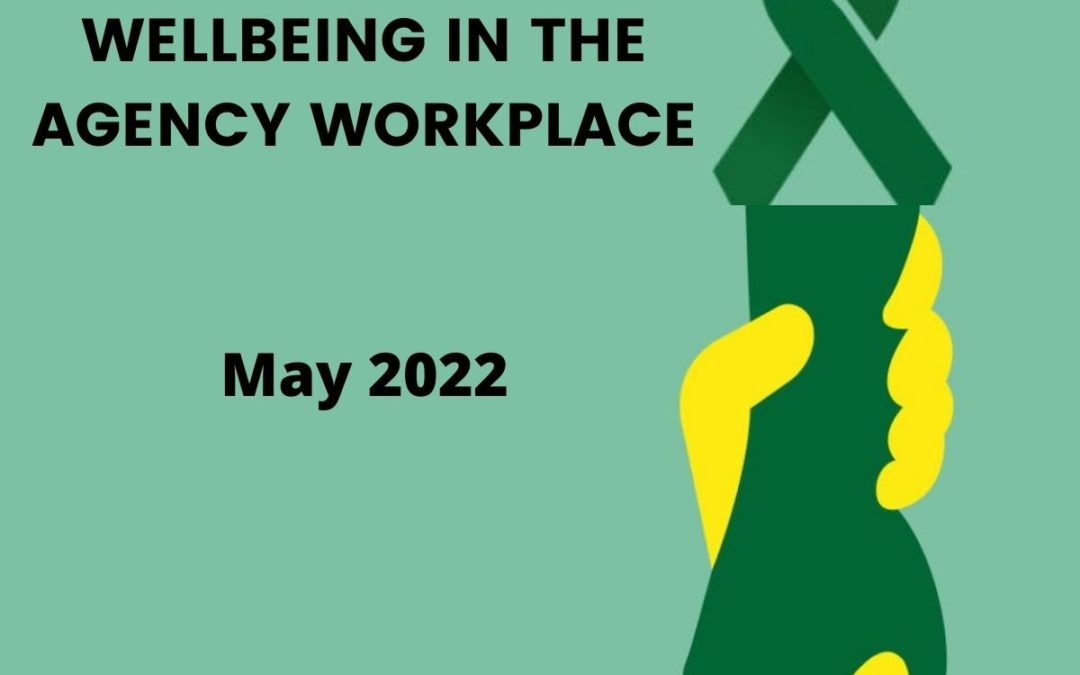
by Chris Bantock | Apr 28, 2022 | Events
You can help make a difference.
We have a real challenge in the workplace generally around mental health – how to approach the subject – how to deal with it – how to avoid it. This is also true in the marketing agency world.
There is no getting away from it – it is a difficult and sensitive subject. We are dealing with human emotions here and normally very strong and powerful emotions at that.
As a community I believe that we have a responsibility to address this challenge, and I would like as many agency owners (Agency Local members and non members) to come together to discuss and work through the challenges.
Mental Health operates on three levels:
1. Agency Owner – Being a leader of a business (however small or large) can have a big impact on you personally. The responsibility, the challenges, the impact on time and personal life. Your own personal health and wellbeing is imperative.
2. Workforce – As an agency owner you have an obligation to look after your employees and your workforce. Often Mental Health issues are not overtly visible, sometimes the culture means the workers do not feel comfortable to open up, they don’t want to be judged or to be seen to be weak. You define the workplace – it is upto you to create the right environment.
3. Others around us
Mental health is just you and your workforce. It applies to everyone around you. In business terms – others you interact with – colleagues, suppliers, partners, associates as well as you friends and family.
Agencies handle this area in different ways. I believe that there are four types of agency workplaces:
Ignorance – Are not aware of the impact of mental health on themselves, their workforce and their suppliers and partners – they simply don’t know about it or address it in any way.
Ignore – Are aware of the challenge and situation but choose to nothing about it
Intention – Have realised the situation and that it is an issue but don’t know how to deal with it.
Action – those that are taking steps to create a safer workspace where the issue is in the open
Unfortunately there are not too many in the later category. Our aim is to move Ignorance and Ignore into a state of Intention and to move those in Intention to Action.
May is Mental Health awareness month and in the UK we have Mental health Awareness week in May 9th – 15th.
At Agency Local we are dedicating the month of May to this subject and we have 4 objectives:
Raise awareness of mental health and the issues around it
Have the open discussion to increase understanding
Highlight practical ways to help yourself
Create guidelines to help agencies on the journey to creating the right workspace
This needs to be more than awareness, more than discussion – it needs to be focused on Action.
That is why at the end of May I hope to publish Guidelines for Mental Health and Wellbeing in the Agency Workspace.
We have lined up a series of events on each Thursday throughout May. We have invited knowledgeable people to come along and share their knowledge and expertise.
I need your help, in terms of your input, your ideas, your views and your knowledge to work with us all to shape this agenda.
I would like your participation at as many of the events as possible.
I would like you to bring along other Agency Owners to join in the discussion
I want to hear your thoughts and views
We have the following calendar of events
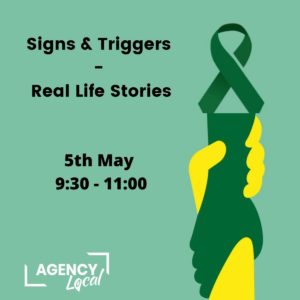
5th – Round the Campfire – Special event to hear real life stories and discuss triggers and causes.
Awareness of the impact of Mental Health challenges.
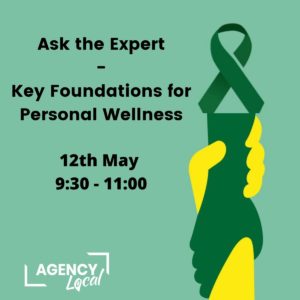
12th – Ask the Expert – Self care and personal wellness
Talks from four experts on looking after yourselves.
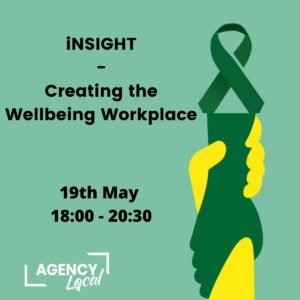
19th – Insight Event – Creating the wellbeing workplace
Keynote speakers will be talking about how we can create the right environment within our agencies.
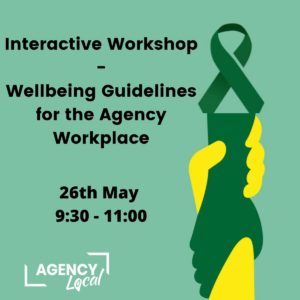 26th – Workshop – Developing the Wellbeing guidelines for the agency workplace
26th – Workshop – Developing the Wellbeing guidelines for the agency workplace
The output for the month – we need your input to develop guidelines and best practise.
Lindengate – Charity Lindengate Mental Health Charity,
The Special events will be open to all. The normal Agency Local events that are chargeable to non members will remain chargeable however 100% of the proceeds will be donated to Lindengate.
We will be asking all members and non members to make a donation to support this charity.
Why Lindengate?
Firstly they are an amazing charity in the Mental Health space.
Secondly, Agency Local Member and longtime supporter, Owen Hughes and his wife, Charlie are cycling London to Paris to raise money for Lindengate so we will be supporting them and the charity. Charlie, also works for Lindengate. So it’s a win – win – win!
Just Giving page to make a donation.
We look forward to you participating and helping to make our sector a stronger and healthy area to work.
More information can be found here.
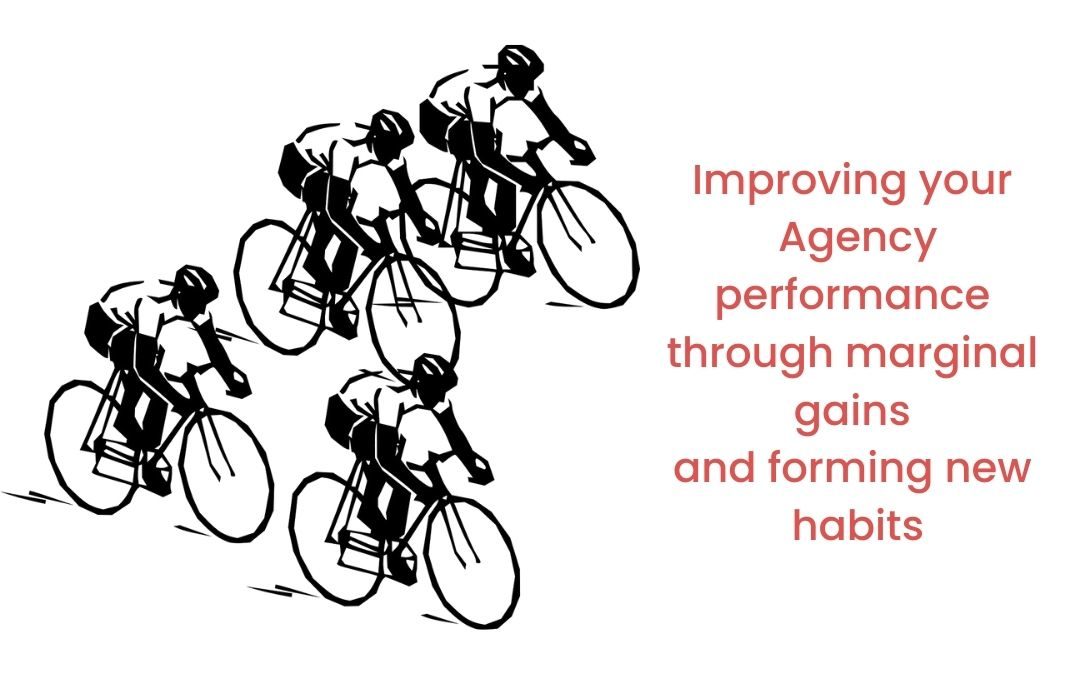
by Chris Bantock | Apr 5, 2022 | Agency Business, Strategy
Habits are the compound interest of self improvement
This quote is from the book Atomic Habits which was the March book of the month at the Agency Local Book Club.
As agency owners and leaders, continuous improvement should be at the center of your business.
Why? As businesses we need to be constantly adapting to our environment to the external factors that have an impact on our business. We have seen this in real time recently with CoronaVirus, now with Ukraine war leading to high inflation.
Adaptation is different to continual improvement. I see continuous improvement as being what you do internally within your business
- making improvements in how you run your business (efficiency),
- how you improve the service you deliver (customer delight),
- how you become more purpose led business (sustainability)
- how you manage your teams how you develop your culture (creating a great place to work),
- how you improve your skills as a business owner (leadership)
These are just examples of areas of continual improvements that you can make in your business.
James Clear, in his book, highlights that if you want to change something then you need to make it a habit. Easier said than done right?!
Making small adjustments – consistently delivers big change.
We are all under pressure in business to set clear goals. These are our destinations, it is where we want to be and what we want to achieve. Interestingly, often winners and losers have the same goals! In a sporting analogy if you think athletes have the goal of winning the gold medal, only one person can win it yet the whole field in the final has the same goal.
“Goals are good for setting a direction, but systems are best for making progress.”
So it’s not only about the goal, it’s about the journey, it’s about the systems, processes and actions that you put in place to achieve that goal. It all comes down to action and constant action at that. Doing one thing regularly, day after day, week after week, month after month – then you will see improvements over time.
And for an action to be constant it needs to become a habit.
“Success is the product of daily habits—not once-in-a-lifetime transformations.”
If you look at marginal gain theory – this is all about making small incremental improvements which on their own are unnoticeable however when put together they compound and become significant change. This is the power of habits.
Clear sites as an example the British cycling teams – which were nowhere in any competition at the turn of the century.
Brailsford became Performance Director in 2003 and he brought in the concept of small improvements – marginal gain – the 1 percent margin for improvement in everything you do.
We saw the first British winners of the Tour de France with Bradley Wiggins and Chris Froome in 2012 and 2013 and Team GB’s went on to win an astounding 32 Olympic medals from Beijing, London and Rio, including 20 golds.
“You should be far more concerned with your current trajectory than with your current results.”
As an agency owner, where is your business on the path you want it to go? Do you have a clear vision of where you want it to go? Are you seeing improvements in key metrics? Are you developing new habits to create that marginal gain?
If you don’t know the answers to these questions then it may be time to get a coach or a guide that can help you establish a clear direction for your agency, and to decide what are the areas in which you need to form new habits.
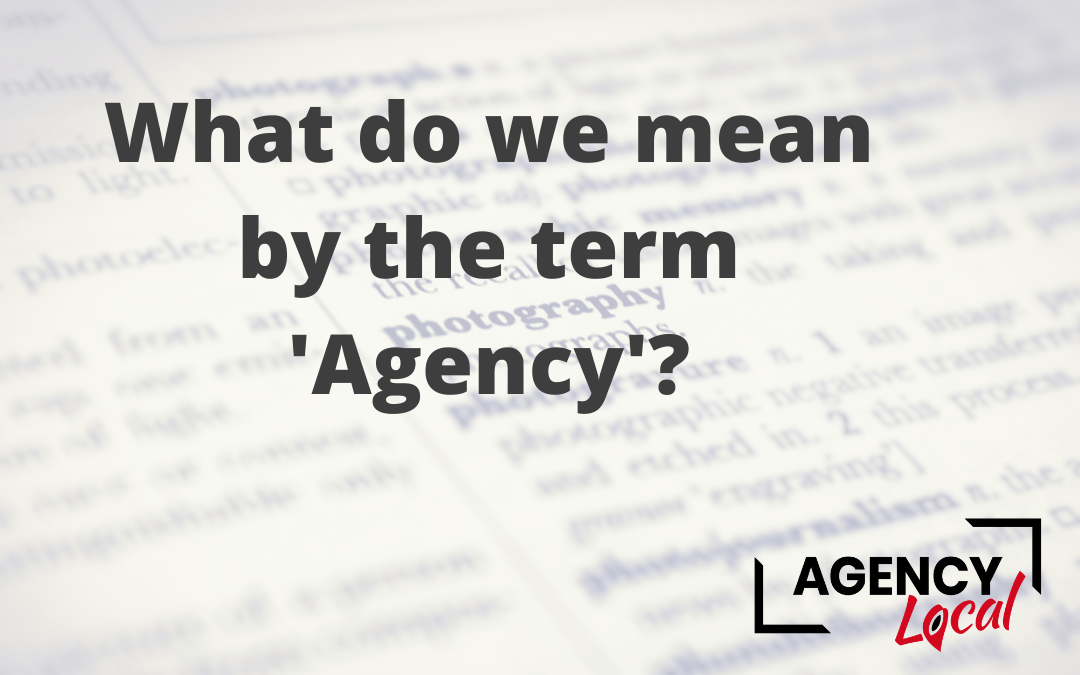
by Chris Bantock | Mar 7, 2022 | Agency Business
From a very broad wide perspective Agency Local serves businesses that provide a creative offering to their customers as part of a wider marketing activity.
We live in a world where people like to put labels on things and the above description commonly known as an agency e.g. marketing agency; advertising agency, Digital agency etc.
Not all creative businesses see themselves as an agency. In the marketing sector agencies are often seen as bigger businesses, which leads onto another debate as the what is a bigger business.
But let’s just focus on the word ‘agency’ which is defined as:
“a business or organisation providing a particular service on behalf of another business, person, or group”
We do often get challenged on using the term ‘agency’ especially by the very small businesses who see themselves as ‘freelancers’. Although freelancers are often self employed I would argue that they are actually running a business; and that business is providing a creative solution to other businesses. So, does this fall under the definition of Agency? I would say so.
Within Agency Local – (we actually use the term in our name!) – we serve any creative business – freelancer or agency, self employed, solo preneur, to businesses that employ one or more staff to those employing 20 + staff.
Often the challenges are different and sometimes they are the same, just on a different scale. Once you employ people you have another set of things to think about and to work out. When you look at common problems such as sales, business development, marketing, finances these apply to all agency businesses irrespective of size.
If ‘Agency’ is not the word to describe these businesses what is? I would love to hear your thoughts.
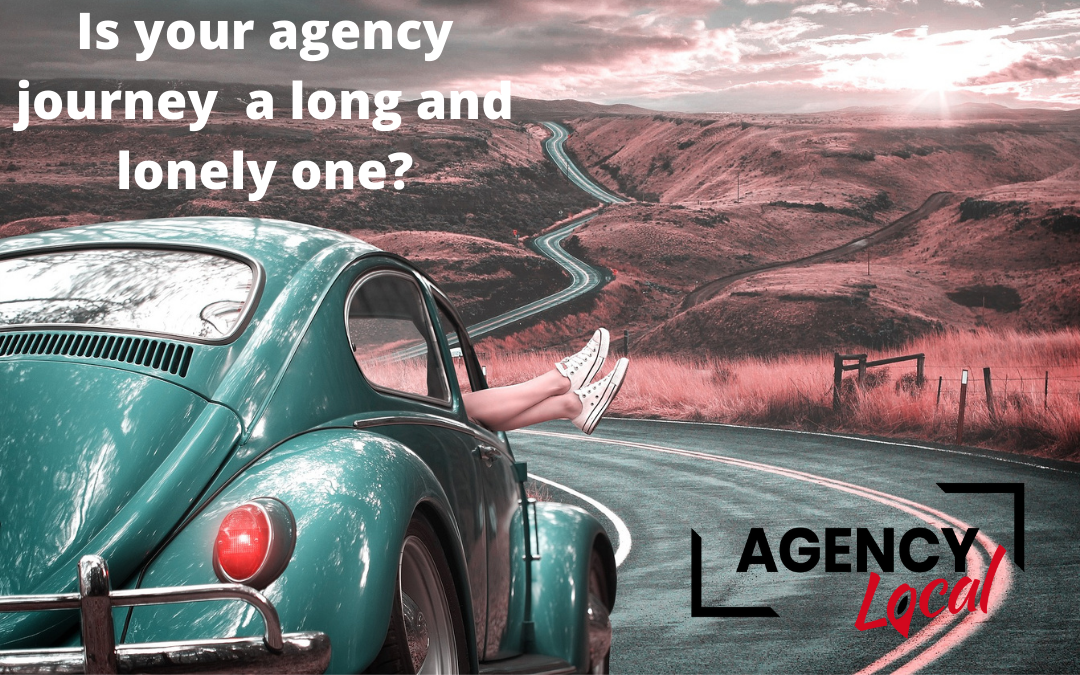
by Chris Bantock | Feb 7, 2022 | Agency Business
At whatever stage you are in your agency growth whether you are starting scaling or getting ready for sale it is never an easy journey. If you are doing it all on your own then it can be a very lonely place. However it does not need to be.
You have to accept that you don’t know everything – nobody does, nobody has all the answers, nobody has all the creativity, nobody has all the ideas, nobody is always right.
One option is to try different things and see if they work. If they don’t then try something else and see if that works …… and repeat, again and again.
Yes, it is great to learn from your mistakes and I totally condone not to have a fear of failure, however this method of growing your business can get you down and (worse of all) can take a very long time to find the formula that actually works and moves your business forward.
The reality is that you will always have challenges at whatever stage of development your business and your agency is at.
Is it not better to find a way that will move your agency’s development forward faster and in a more efficient and effective way?
I have identified three key journeys you, as an agency owner are on:
Journey of Creativity
We are always coming up with new ideas for our business however we are never sure if they are good ideas or bad ideas, or if they’re going to make the difference that we want them to make.
On this journey it is invaluable to have the sounding board. someone that you can talk to, bounce ideas off, to explore alternatives, to build on an idea to make it better. to sanity check if it’s a good idea or not if it’s going to work or not.
In order to get the most out of these discussions it’s best to have somebody that really understands your business, your sector and what you are trying to achieve with your agency.
This person will listen, they will question, they will put forward alternatives and they will give their opinion. Based on the outcome of these discussions you will have a much more informed and a much better solution than if you would have gone ahead with your initial idea.
Journey of Discovery
Open Your Mind to unearthing New information and new ways to look at things. Being an agency owner is always a journey of Discovery and you can either do that on your own or you can do it with others.
When you’re doing it with others then they can help guide you on this journey of Discovery. They will identify areas where you need to develop both personally and in a business sense: they can point you in the right direction: they can provide alternative views which help you uncover new realities.
Looking at your business differently, expanding your thinking and discovering new and better ways to grow and develop should be a daily task for any agency owner.
Journey of Learning
It will not surprise you to know that whatever challenges you are facing in your business, these challenges will have been faced by other people at other times before you.
In the agency world it is very common for the owner of the business to have particular skills and training in what that agency focuses on delivering e.g. design website photography etc. The business, commercial and leadership training will often be at a minimum and will often be learnt on the job.
The journey of learning is to leverage knowledge and information that others have gathered by solving the same challenges and by having a wider and broader understanding of the business skills knowledge required to grow and develop an agency.
Look for education, ask for advice, ask for what you should from those that know, those that have the experience and those that want to help. Learn from others, develop a mindset of continual learning.
Coach, mentor, teacher … What do you need?
I wrote a post on LinkedIn last week asking for help as to what I should call myself that accurately describes what I do to help agency owners. Why was I asking this? Because people want to put you in a box – “He’s a great agency coach”, “a wonderful business mentor”, “you will learn a lot from him – he’s a great teacher”. So I asked for help.
A colleague from another community I am part of very generously (and brilliantly) took the time and suggested a response. I could never have come up with this (creativity), it made me look at what I do differently (discovery), and taught me that there are people who have a much better command of the English language than me (learning).
He said:
“Chris Bantock, your Guide.
I know where you want to go, it is a place I am familiar with. On our journey together I will pay attention to your needs and desires, the ones you are aware of, and others that you’re not, and I will coach, train, mentor, advise or educate depending on what is needed at the time. I am YOUR guide and YOUR business confidant with many hats. My most important one is curiosity, my job is to also learn on every journey”
Ultimately you will make your own decisions. However I would hope that you would agree that it is better to make a more informed decision once you’ve explored the creative options, discovered alternative views and learnt more about the challenge. You don’t need to be on your journey alone.
If any of the points here resonate with you and you think I can help in any way then please get in touch. I would be honoured to perform the role of ‘guide’ with you.

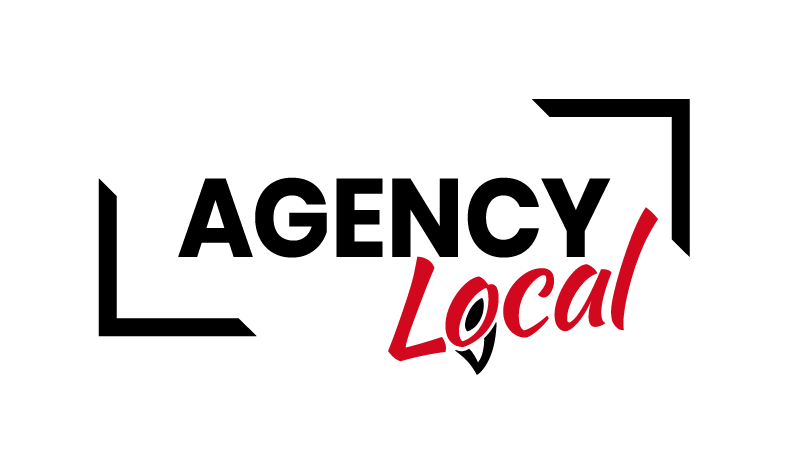




 26th – Workshop – Developing the Wellbeing guidelines for the agency workplace
26th – Workshop – Developing the Wellbeing guidelines for the agency workplace

